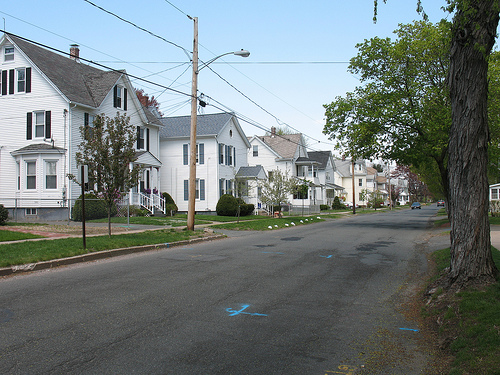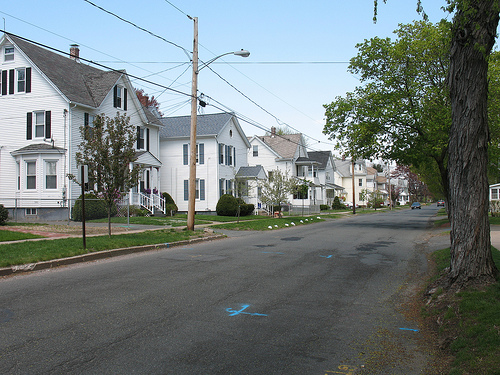 Retrofitting energy-inefficient houses could save tons in money and oil.Photo courtesy of Robert Blackie via flickr
Retrofitting energy-inefficient houses could save tons in money and oil.Photo courtesy of Robert Blackie via flickr
The Gulf oil spill disaster is usually tied to Americans’ insatiable appetite for gasoline to fuel an unsustainable lifestyle.
And while transportation accounts for most of the United States’ petroleum consumption, there are still more than 14 million homes that rely on some type of oil for heating. Retrofitting those houses to run on cleaner fuel and increase their energy efficiency could save as much oil as would be spilled in two Deepwater Horizon disasters a month, according to a report from the Natural Resources Defense Council and the Institute for Market Transformation, a non-profit focused on green building.
“Retrofitting our oil-heated homes and commercial buildings to 50 percent savings would save 2 billion barrels of oil by 2030, practically offsetting the amount of oil we could get by drilling in the Outer Continental Shelf,” the report states. “In addition, home retrofits could save more than double the amount of natural gas that we could produce by drilling the Outer Continental Shelf.”
NRDC points out that the $20 billion BP has set aside for the Gulf cleanup could finance energy efficiency retrofits for every home in Louisiana and Mississippi, cutting homeowners utility bills by 25 percent. The nearly $4 billion BP has spent so far on the cleanup could pay for retrofitting 650,000 homes.
“That could have been spent on U.S.-made insulation, air conditioners, furnaces, water heaters, and other products, as well as the labor to install them,” the report states. “Of course, oil savings from building efficiency pale in comparison to the savings potential of more efficient vehicles, better urban planning, and increasing transportation options, but the magnitude of the savings potential of the building sector illustrates just how short-sighted our focus on drilling has become.”
And while building energy efficiency improvements aren’t cheap, those investments will continue to pay dividends for decades in the form of lower energy bills and reduced demand for fossil fuels.



